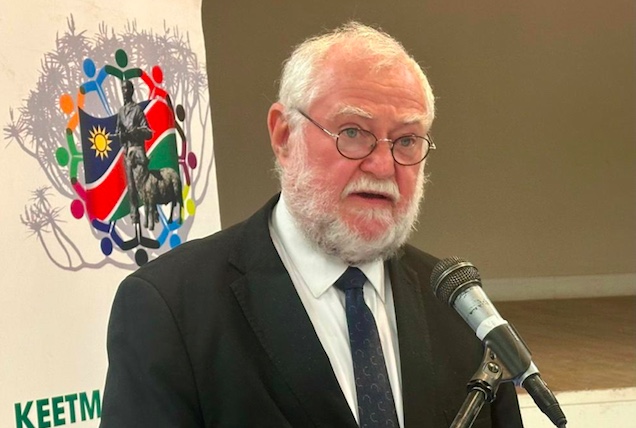The Ministry of Agriculture, Water and Land Reform held a concluding consultation to review the final draft of the resettlement criteria on Monday.
The validation workshop incorporated inputs from previous consultations into the revised national resettlement policy, as set out during the second National Land Conference in October 2018.
Minister Calle Schlettwein emphasised the importance of implementing an effective resettlement policy in his keynote address.
“Many of us here today lived and/or have experienced colonial subjugation in one way or another – which brought about skewed land distribution, which my ministry is determined to correct until a balanced land redistribution is achieved,” he said.
“These consultations are a clear dedication towards a responsive land reform policy.”
The workshop was attended by Khomas governor Laura McLeod-Katjirua, the ministry’s executive director Ndiyakupi Nghituwamata, governors and chairpersons of the regional resettlement committees, as well as a range of other stakeholders like traditional authorities and farmers unions.
Schlettwein highlighted two key pillars of the revised resettlement criteria: ‘needs-based redistribution’ and productivity of land on which resettlement occurs.
The first criterion means that dispossessed communities must be treated preferentially, the minister explained.
“It means that 70% of resettlement beneficiaries must originate from the region wherein the land to be resettled is located and 30% is available to disadvantaged Namibians from elsewhere,” he said.
The ministry also aims “to reach out to persons living in corridors and unemployed youth”.
With regard to land productivity, Schlettwein said “resettlement must result in decent livelihoods for the resettled persons, not into poverty”.
The resettlement criteria “therefore, must ensure that the land remains or gains productivity”.
“The overall objective of our land reform remains to correct the injustices of the past colonial regimes, both the German and South African apartheid regimes. Namibians should see it as a fountain of peace and unity, wherein our traditions and customs are anchored and through which our dignity is restored,” Schlettwein said.
The minister also made clear that “the current rate of funding for land reform falls far short of what is needed to implement meaningful land reform”.
“For a successful implementation of the new resettlement policy, budgetary allocations must be improved significantly in future,” he added.
Stay informed with The Namibian – your source for credible journalism. Get in-depth reporting and opinions for
only N$85 a month. Invest in journalism, invest in democracy –
Subscribe Now!






